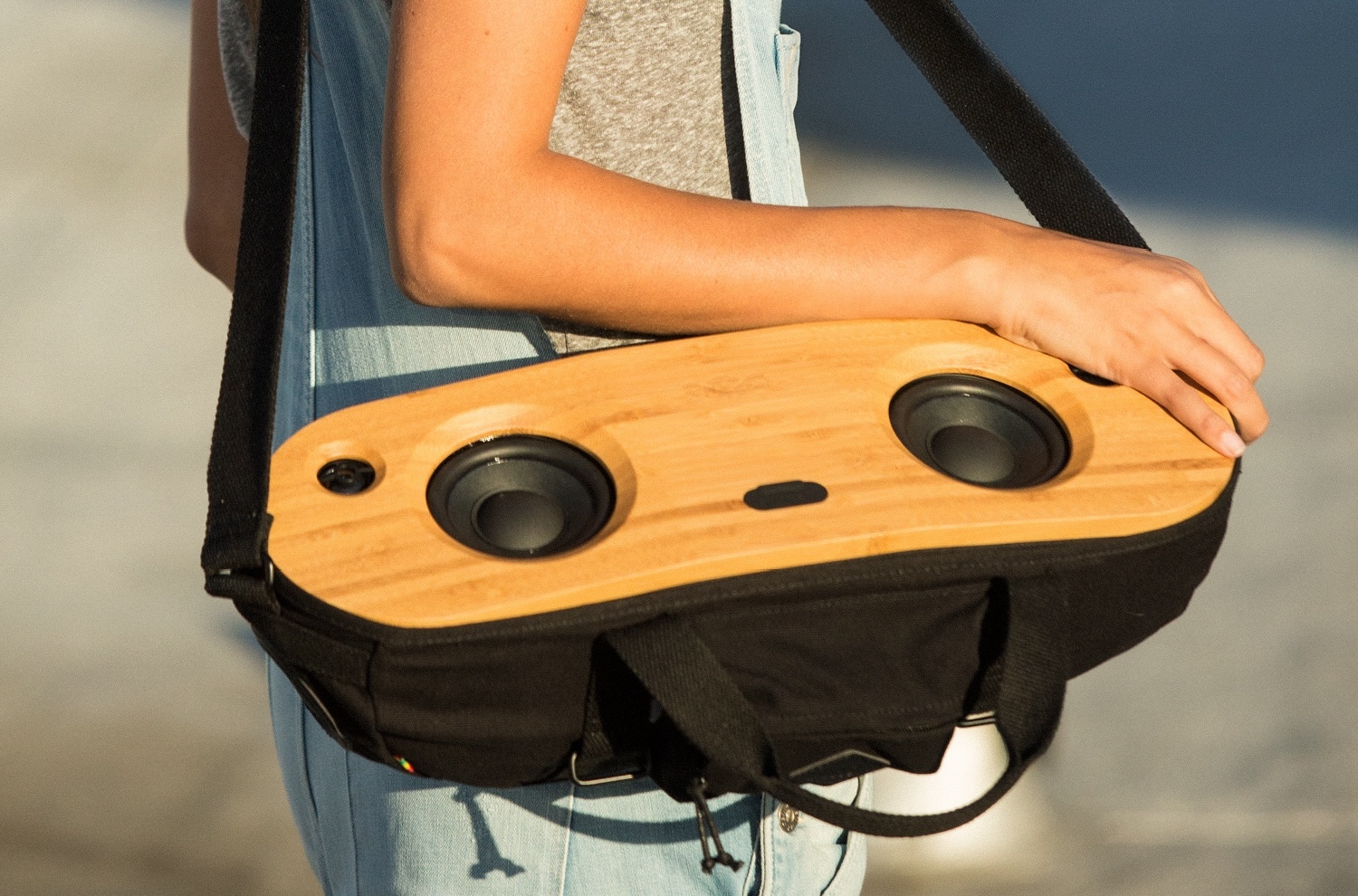What Is Speaker Wattage? Speaker Watts Explained
Posted by House of Marley on May 21st 2024
If you’ve ever shopped for speakers, you’ve probably seen all kinds of terms with numbers next to them. Watts, impedance, frequency response—the list goes on. Buying speakers starts to feel like doing a math problem.
That first measurement—watts—is a critical one. Wattage is the amount of power your speakers can accept without being damaged. Make a wattage mistake, and you could blow the brand new speakers that required long division for purchase.
But what is speaker wattage exactly? Does it affect sound quality? And how many watts do you need? Turn up the tunes and join us as we answer these questions.
What Does “Watts” Mean for Speakers?
So, what is speaker wattage? Let’s get scientific for a second.
On their own, watts technically have nothing to do with sound. A watt (W) is a unit of power defined as one joule per second.[1] If you remember from school, a joule (J) is a unit of energy.[2] In other words, wattage is a measurement of the rate of energy transfer.
What does all that mean for the world of audio? A speaker’s wattage refers to its power handling capabilities, so a higher number simply means that a speaker can handle more power without damage.
As we’ll see, these numbers matter when you’re buying speakers.
The Significance of Watts in Speaker Performance
Knowing about speaker wattage doesn’t just make you smarter. Watts have an impact on speaker performance.
Specifically, wattage affects volume—at least, kind of. A speaker with a higher wattage isn’t necessarily louder than a low-watt version, but it does have the potential to be louder. That’s because the high-watt speaker can accept more power.
Speakers vs. Amplifiers
Now, if you want to get technical, speakers—the cones on your sound system that make noise—don’t put out watts at all. They accept them. Wattage actually originates from amplifiers. An amp is what sends the signal to your speakers.
Here’s where things become tricky. Some speakers have built-in amps; these are known as “active” or “powered” speakers. Other speakers need an amp to make sound; these are called “passive” or “non-powered” speakers.
Decoding the Numbers
Ultimately, wattage does matter when you’re buying speakers—just not in the way you might think. Let’s look at some terms and numbers you’ll want to know.
Continuous vs. Peak Power
All speakers have two power ratings:
- RMS power – This is the amount of power a speaker can handle over long periods. You might see something like “70W Total RMS” on the box.
- Peak power – This is the maximum power a speaker can take before it sustains damage. You might see a speaker listed as “140W Peak Power.”
Amplifiers and Speaker Wattage Compatibility
So, why do those numbers matter? If you plan to buy passive speakers and pair them with an amplifier and turntable, you’ll need to understand compatibility. Correctly matching speaker wattage with amplifier power is a must—otherwise, you may damage your new purchase.
As a rule of thumb, your speaker wattage should be higher (at least double, ideally) than the amp wattage.[1] That way, your speakers can handle any power surges without issue.
Speaker Wattage and Sound Quality
In most cases, speaker wattage has a minimal impact on sound quality. High-quality 10W speakers should sound just as life-changing as well-made 200W speakers.
However, there are times when wattage can affect sound quality, especially at higher volume levels. When you push a speaker to its wattage limit, the sound can distort or “break up.” This effect can be awesome with a guitar amp, but it’s not ideal on home speakers or headphones when you’re trying to reproduce your favorite songs. If you're exploring personal audio options, it’s also worthwhile to consider the unique sound properties offered by different types of headphones, as choosing the right pair can significantly enhance your listening experience.
How Many Watts Do You Really Need?
If you’re a fan of good music, you might think that bigger peak wattage numbers are always better. After all, who doesn’t love to crank up the tunes?
However, there is such a thing as too much wattage for a space. High-wattage speakers are usually bigger than their low-watt counterparts—and therefore more expensive. You can always play a high-watt speaker quietly, but if you never crank the volume level up past 2, you might be better off paying less for a smaller speaker.
Every space differs, but here are some general guidelines:
- Indoors (small room) – For a small space, 10–20W is enough to fill the room.
- Indoors (large room) – In larger spaces, you may need 20–50W.
- Outdoors – As long as you’re not hosting a festival, you can get away with 50–100W.

House of Marley Speakers: Where Great Sound Meets Sustainability
Now that you understand the basics of speaker wattage, you can browse for speakers without the math-induced headache.
If you don’t love the idea of doing times tables to pick speakers, you can make your decision easier by choosing some high-quality House of Marley speakers. Our active speakers come with a built-in amplifier for plug-and-play capabilities. Plus, when you buy House of Marley, you’re not just treating your ears—you’re caring for the planet.
Whether you need Bluetooth speakers for your home or portable speakers for anywhere, ours deliver the sound and the feel-good vibes you’re looking for. Learn how to choose a Bluetooth speaker in our guide and discover the House of Marley difference.
Sources:
TechTarget. Definition: watt. https://www.techtarget.com/whatis/definition/watt
Encyclopedia Britannica. Joule: unit of energy measurement. https://www.britannica.com/science/joule
ElectronicsHub. Speaker Wattage Vs Amp Wattage. https://www.electronicshub.org/speaker-wattage-vs-amp-wattage/













